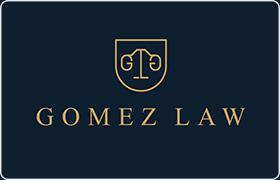San Marino Foreclosure Lawyer, California
Sponsored Law Firm
-
 x
x

Click For More Info:
-
Gomez Law, APC
3250 Wilshire Blvd Suite 1901 Los Angeles, CA 90010» view mapReal Estate Dedication. Compassion. Trust.
Whether you are looking to purchase a house or commercial property or in the process of probate, we are here to provide the legal support you need to help you move forward.
800-901-4291
Tappan Zee
Power of Attorney, Foreclosure, Real Estate, Motor Vehicle
Status: In Good Standing Licensed: 23 Years
 Mark Gomez Los Angeles, CA
Mark Gomez Los Angeles, CA Practice AreasExpertise
Practice AreasExpertise
